COLOURS:
Secondary colours = major and minor triads
Learning outcome: major and minor chords are orange, green or purple
How does this work?
The 3 notes of a C major triad (C, E, G) are yellow, red and red respectivly

We think of this entire chord as orange, because its notes are a mixture of yellow and red
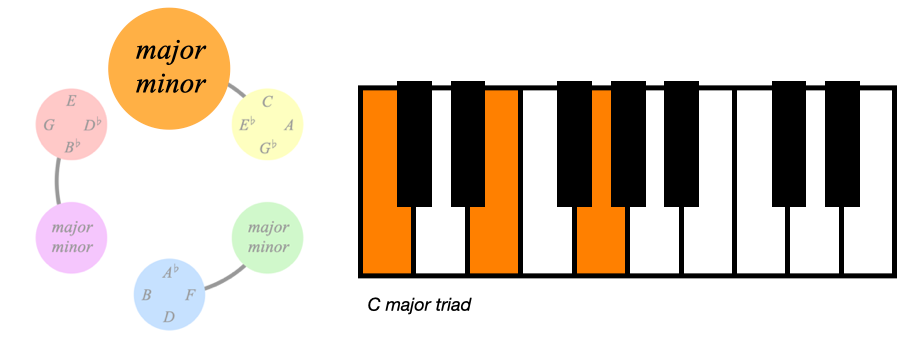
C minor is also orange
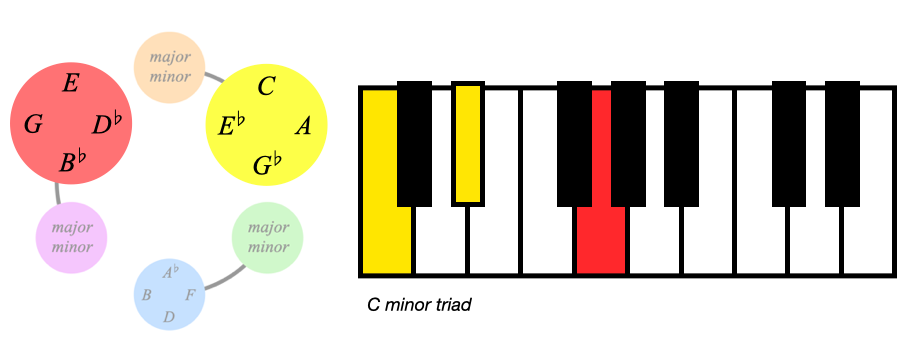
the foundation of tonal harmony and harmonic stability
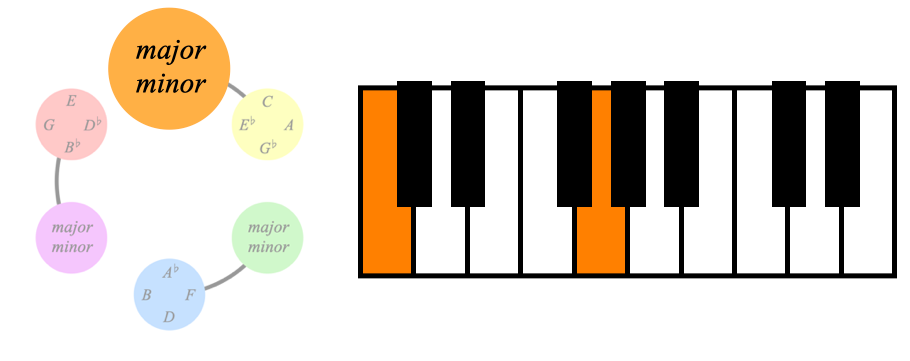
Ok,
All major and minor chords built on yellow root notes are orange
Heres a Gb minor triad with the 5th in the bass, it's orange.
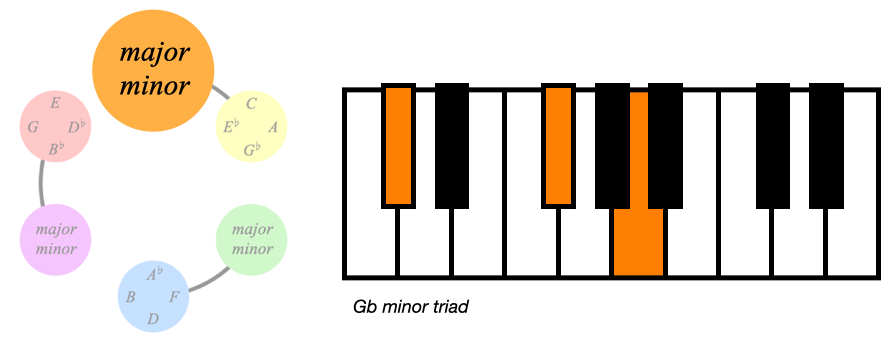
Seeing this on guitar really helps, play a barre chord and move it 3 frets at a time to traverse the respective colour family

So, if we ascend major or minor triads in semitones we get orange, purple, green, orange, purple, green etc:

We want to get used to seeing all major and minor chords like this:
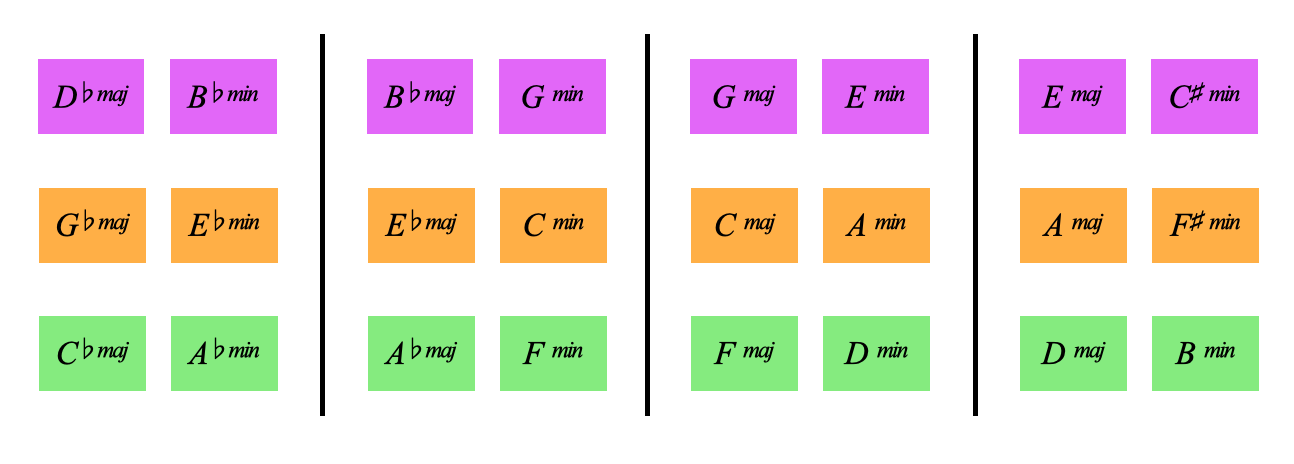
We'll understand why in the next section
But as for this section,
Do you feel comfortable that major and minor chords related by minor 3rds have the same colour?

Each of the 6 colours represents either notes or chords related by minor 3rds
I think it's time for a break...
Back to Primaries | Break Time